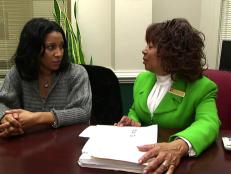5 Things You Need to Know Before You Do a Reverse Mortgage
They almost seem too good to be true. You’re a senior citizen with less income than you need to survive, and suddenly you learn of the reverse mortgage.
You’re told that the house that you have lavished attention on for years will now take care of you. Your house will pay you back by paying you back -- in freeing up your home equity, you’ll get monthly payments for as long as you remain in your home, which could be effectively, the rest of your life. Or instead you can receive an immediate giant chunk of money upfront and then just live in your house for as long as you like. Or you can use the equity as a line of credit, or you can do some form of all of the above.
If you have intelligent, reputable, caring people advising you, they can be as good of a deal as advertised. If you don’t, you can get into a mess. Even in the best of situations, they aren’t for everyone, and as with any loan -- and make no mistake, it’s a loan -- you really need to know what you’re getting into.
So if you’re thinking of taking out a reverse mortgage, here are some issues to consider. Then after considering them, go huddle with your family, maybe an attorney, and especially a HUD-approved reverse mortgage counselor.
- Be aware of upfront and extra fees.
- Does your spouse own your house?
- A reverse mortgage should be a last resort, not a first resort.
- Be skeptical of the credit line option.
- The earliest age you can take out a reverse mortgage is 62.
1. There are a lot of upfront and extra fees that get left out in the TV commercials.
Closing costs are rolled into the loan -- it’s helpful to think of this as refinancing your house -- which includes the appraisal fee (maybe $300) and a hefty origination fee (which is 2 percent of the appraised value of a $200,000 home; if it’s more than that, you add 1 percent for the rest of the home, although the origination fee is capped at $6,000). You also have to pay for mortgage insurance, and the homeowner is responsible for paying their taxes and insurance.
That is -- usually. D. Steve Boland, Bank of America reverse mortgage executive, says that BofA offers an escrow account to their customers.
But because of all of these fees, and the confusion that can result from them, are why Boland says, “We can’t stress enough to the borrower that if they’re comfortable with it, they should have conversations about the reverse mortgage not just with the spouse but the heirs, or others -- anyone who they trust and can offer input on whether this is the right program for them.”
Add up the extra fees before doing a reverse mortgage to make sure you're comfortable with the total cost.
2. Does your spouse own your house?
Maybe the husband went the old-fashioned route years ago and put the home in just his name. Or perhaps you’re on your second marriage, and you moved into one of your two homes and never thought to put the house into both of your names. Well, if you’re going to do a reverse mortgage, make absolutely sure that both spouses have the house in their name. Why?
Because if, say, the wife who owns the house dies, the husband, who isn’t listed as an owner of the home, now has to pay back the loan on the house. And if he can’t, he could lose it. This underscores the importance of finding someone qualified to help you with your reverse mortgage.
Author Shari Olefson, a real estate attorney for 20-plus years and author of Foreclosure Nation: Mortgage the American Dream, says that after the housing bubble burst, a “reverse mortgage became one of the few still-doable loans and hence super popular among mortgage brokers struggling to make a living. As a result, we’ve got a lot of inexperienced guys selling the product -- always an added risk for customers.”
3. A reverse mortgage should be a last resort, not a first resort.
“The thing about reverse mortgages, as to whether it’s a good idea or not, it depends on the individual’s circumstances,” says Susanna Montezemolo, vice president of federal affairs at the Center for Responsible Lending, a nonpartisan nonprofit in Washington, D.C. “If you have retirement accounts, it makes sense to tap into those first. A reverse mortgage is a fairly high cost transaction.”
In other words: if you’re wealthy with a multitude of ways to fund your retirement, this isn’t for you. If you’ve lost a lot of wealth and feel like your future is shaky, this may be worth your time to look into. If you’re cash-poor but you have a lot of equity in your house, then that’s usually the sweet spot. If your house is going to be foreclosed, or in the midst of bankruptcy, a reverse mortgage may help pay off those debts and keep you in your home -- but even then, you have to think long and hard. Could you sell your house, pay off all of your debts, have some extra money and just find a less expensive home?
Another obvious thought, too. Does it bother you that you won’t have your most valuable asset to pass onto your children?
Actually, there’s a way around that, according to Jeffrey A. Asher, an estate planning and elder law attorney in New York City. He says that if his clients can afford it, and if they want to leave their heirs their house, he advises them to take out a life insurance policy -- and then the money received could conceivably be used to pay the reverse mortgage debt.
Asher steers a lot of his clients away from reverse mortgages -- but he also aims many of them in that direction as well. He says that they can especially work well for people on Medicaid, the government program that offers health insurance to low-income individuals.
“Equity in a home is typically excluded as a resource for Medicaid purposes,” says Asher, but he says that the Medicaid rules allow a homeowner to take out a reverse mortgage if the money is separate from the homeowner’s other money. “I recommend a Medicaid trust, funded with the reserve mortgage proceeds. That way, the homeowner-Medicaid recipient can qualify for Medicaid and have the cash needed to pay for things that Medicaid typically will not pay for.”
4. Be skeptical of the credit line option.
It’s popular among homeowners who get reverse mortgages, and it sounds like a nice idea, but Asher cautions: “Many financial institutions that offer reverse mortgage will pressure the consumer to keep the cash balance in a line of credit account, which would be available to the consumer on an 'ask-for' basis. However, not expressly stated is the fact that when the consumer asks for his or her money out of the line of credit account, he or she is actually borrowing money from the financial institution with the amount in the line of credit account being used as collateral.”
What does all of this mean? Asher says that you’ll be charged an interest rate on the borrowed money even though it’s your own money that you’re removing, and it was the financial institution’s idea to offer the line of credit. Many consumers, says Asher, never quite figure this out until later. And lines of credit run out, anyway, whereas receiving those monthly payments, you’ll receive until you live to be 115 or beyond. That, of course, is a big part of the appeal of the reverse mortgage.
If you're offered a credit line option, carefully review the terms before accepting.
5. The earliest age you can take out a reverse mortgage is 62.
That’s nice that that’s an option, and there’s little doubt that some people who are 62 can use a reverse mortgage. And there is a line of thought that says the earlier the better, since the upfront costs of a reverse mortgage are significant, and so if you’re a youngish person in their 60s, you’re going to benefit longer from this type of loan.
But since a reverse mortgage is set up to help you get through the last stage of your life, if you’re in your early or mid-60s, you may want to ask yourself if you’re really at that point. (If this helps, Boland says the average Bank of America customer who takes out a reverse mortgage is 74.) What if you’re still kicking at 82 and suddenly you want to sell your home and move to Portugal? Or maybe more realistically, replant your roots 500 miles away to Boise to live with your daughter and grandchildren?
You can sell your home and move away, but chances are, you won’t have any equity left to make a profit, which means funding your lifestyle in Portugal is probably out. But if your kids are going to shelter you, you may be okay with selling your house and having nothing left to show for it, especially since these are non-recourse loans (if you sell your house for $200,000 but your monthly payments from the reverse mortgage these last 20 years mean that you’ve been paid $225,000, it’s the bank that will take the loss, not you).
Still, clearly, there are a lot of questions to ask yourself before jumping into these. The expression look before you leap seems tailor-made for the topic of reverse mortgages. But there also seems little doubt that a reverse mortgage can be a financial lifesaver for the right person. Where the skill comes in is deciding if you’re the right person.













































